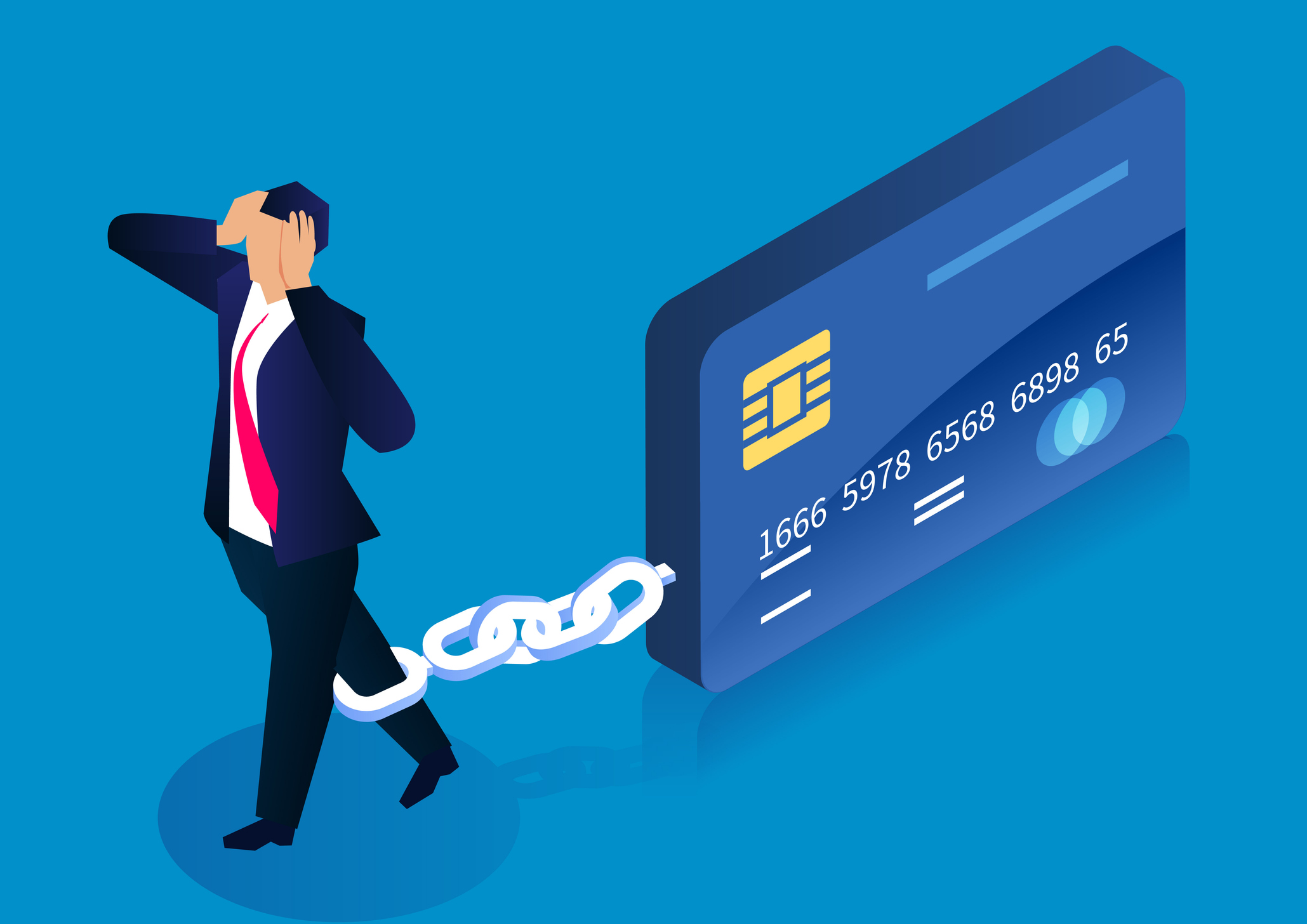Managing Debt: Strategies for Debt Repayment and Financial Freedom

Debt has become an integral part of modern life for many individuals and households. While debt can provide opportunities and financial leverage, mismanagement of debt can lead to significant challenges and restrictions. It is essential to understand the impact of debt and adopt effective strategies for debt repayment to achieve financial freedom. In this article, we will explore various approaches to managing debt, empowering you to take control of your financial situation.
Understanding the Impact of Debt

Understanding the Impact of Debt
Debt can have a profound impact on an individual’s financial well-being. It can limit your financial options, increase stress levels, and hinder your ability to achieve long-term financial goals. High levels of debt can also result in unfavorable credit scores, affecting your ability to secure favorable interest rates or obtain new lines of credit. Understanding the consequences of debt is crucial to motivate and guide your debt management journey.
One of the key aspects of debt management is minimizing the cost of borrowing. Debt, especially high-interest debt, can accumulate rapidly if not managed effectively. By understanding the impact of interest rates on debt repayment, you can make informed decisions about prioritizing debt repayment. Additionally, carrying a heavy debt burden can be emotionally draining and impact your overall well-being. Taking control of your debt is the first step towards financial freedom.
Importance of Debt Management
Proper debt management is vital for maintaining financial stability and achieving long-term financial goals. By actively managing debt, you can reduce financial stress, improve creditworthiness, and create opportunities for future growth. Debt management involves assessing your current debt situation, creating a repayment plan, budgeting effectively, increasing income, and seeking professional assistance when necessary. By implementing these strategies, you can regain control over your finances and work towards achieving financial freedom.
Assessing Your Debt
Before formulating a debt repayment plan, it is crucial to assess your current debt situation. This involves understanding the types of debt you owe, calculating your debt-to-income ratio, and reviewing your credit reports. By gaining a comprehensive overview of your debts, you can make informed decisions about which debts to prioritize and the most effective strategies for repayment.
Start by identifying the different types of debt you have, such as credit card debt, student loans, or mortgage loans. Each type of debt may have different interest rates, repayment terms, and consequences for non-payment. Understanding the specifics of each debt will help you allocate your resources effectively. Additionally, calculating your debt-to-income ratio, which is the percentage of your income that goes towards debt repayment, will give you a clear picture of your debt burden.
Finally, review your credit reports from the major credit bureaus to ensure accuracy and identify any potential issues. Your credit report provides details about your debt accounts, payment history, and any negative remarks that may affect your creditworthiness. By reviewing your credit reports regularly, you can address any errors or discrepancies and track your progress as you work towards debt repayment.
Creating a Debt Repayment Plan

Creating a Debt Repayment Plan
Once you have assessed your debt, it’s time to create a debt repayment plan. This plan will serve as your roadmap towards becoming debt-free. A key principle of debt repayment is prioritizing high-interest debt. High-interest debt, such as credit card debt, can accumulate quickly and become a significant financial burden. By allocating more resources towards high-interest debt, you can minimize the overall interest paid and expedite your journey towards financial freedom.
In addition to prioritizing high-interest debt, consider exploring debt consolidation options. Debt consolidation involves combining multiple debts into a single loan or credit account with a lower interest rate. This approach simplifies debt repayment by reducing the number of monthly payments and potentially lowering the overall interest paid. However, it is important to evaluate the terms and costs associated with debt consolidation to ensure it aligns with your financial goals.
Negotiating with creditors is another strategy to consider. In some cases, creditors may be willing to negotiate a lower interest rate, waive fees, or create a more favorable repayment plan. Engaging in open and honest communication with your creditors can lead to mutually beneficial agreements and help ease your debt burden. Remember, creditors want to recover their money and are often open to negotiation if it increases the likelihood of repayment.
Budgeting and Cutting Expenses
In addition to creating a debt repayment plan, effective budgeting plays a crucial role in managing debt and achieving financial freedom. Budgeting involves analyzing your income and expenses, identifying areas where you can reduce spending, and implementing techniques to ensure your budget is sustainable in the long run.
Start by thoroughly examining your income sources and understanding your cash flow. This will allow you to determine how much money you have available to allocate towards debt repayment and other expenses. Next, identify areas where you can cut expenses without significantly impacting your quality of life. This could involve reducing discretionary spending, renegotiating service contracts, or finding more affordable alternatives.
Implementing effective budgeting techniques, such as the envelope system or zero-based budgeting, can help you stay on track with your financial goals. The envelope system involves allocating cash into different envelopes dedicated to specific expenses, ensuring you only spend what you have allocated. Zero-based budgeting, on the other hand, requires assigning every dollar of income to a specific category or purpose, leaving no room for unaccounted expenses.
Increasing Income and Building Savings

Increasing Income and Building Savings
While reducing expenses is an essential part of debt management, increasing your income can accelerate your debt repayment journey and provide a buffer for unexpected expenses. Explore additional income sources that align with your skills and interests. This could involve taking up a part-time job, freelancing, or starting a side business. The extra income generated can be dedicated towards debt repayment, helping you become debt-free faster.
Additionally, utilize windfalls such as tax refunds, bonuses, or inheritances to make significant debt repayments. Rather than using windfalls for discretionary spending, channeling them towards debt repayment can have a substantial impact on reducing your overall debt burden. Consider adopting the “snowball” or “avalanche” method for using windfalls. The snowball method involves paying off the smallest debt first, providing a psychological boost and motivation to continue debt repayment. The avalanche method focuses on paying off debts with the highest interest rates first, reducing the overall interest paid.
While repaying debt, it is essential to build savings simultaneously. Establishing an emergency fund will provide a safety net for unexpected expenses and prevent you from resorting to debt in times of crisis. Start by setting aside a small portion of your income each month and gradually increase the amount over time. Aim to have three to six months’ worth of living expenses in your emergency fund, ensuring financial stability and peace of mind.
Seeking Professional Assistance
In some situations, seeking professional assistance can be beneficial for managing debt effectively. Credit counseling agencies offer guidance and resources to help you develop a personalized debt management plan. They can negotiate with creditors on your behalf, provide budgeting tools, and offer educational resources to enhance your financial literacy. Working with a reputable credit counseling agency can provide valuable insights and support as you navigate your debt repayment journey.
There may be instances where debt settlement or bankruptcy becomes a consideration. Debt settlement involves negotiating with creditors to settle your debts for less than the full amount owed. This option may be suitable if you are facing extreme financial hardship and unable to repay your debts in full. However, it is essential to understand the potential consequences, such as negative impacts on credit scores and tax implications.
Bankruptcy should be considered as a last resort when all other options have been exhausted. It is a legal process that allows individuals or businesses to eliminate or repay their debts under court protection. While bankruptcy can provide relief from overwhelming debt, it has long-term consequences and should be approached with caution. Consult with a qualified bankruptcy attorney to understand the implications and determine if it is the right solution for your specific circumstances.
Staying Motivated and Avoiding Future Debt

Staying Motivated and Avoiding Future Debt
Managing debt requires commitment and persistence. Staying motivated throughout the debt repayment journey is crucial for long-term success. Track your progress regularly and celebrate milestones along the way. This could involve rewarding yourself with a small treat for achieving a specific debt reduction goal or acknowledging your achievements in a journal. By recognizing your progress, you will stay motivated and inspired to continue working towards financial freedom.
Developing healthy financial habits is essential for avoiding future debt and maintaining financial stability. Avoid impulsive spending and focus on needs rather than wants. Prioritize saving and investing to build wealth over time. Establish a solid financial foundation by setting realistic financial goals, creating a comprehensive budget, and regularly reviewing your financial situation. By adopting these habits, you will be better equipped to navigate future financial challenges and secure your long-term financial well-being.
Conclusion
Managing debt is a crucial aspect of achieving financial freedom. By understanding the impact of debt, creating a debt repayment plan, budgeting effectively, increasing income, and seeking professional assistance when needed, you can take control of your financial situation. Stay motivated, track your progress, and develop healthy financial habits to avoid future debt and build a solid financial foundation. Remember, debt repayment is a journey, and with the right strategies in place, you can overcome financial obstacles and achieve the financial freedom you desire.
FAQs
Q1: Should I focus on paying off high-interest debt first or all debts simultaneously?
A1: It is generally recommended to prioritize high-interest debt first. By doing so, you minimize the overall interest paid and accelerate your debt repayment journey. However, if you have multiple debts with similar interest rates, it may be beneficial to pay off smaller debts first for psychological motivation.
Q2: Can debt consolidation help me manage my debts more effectively?
A2: Debt consolidation can be a useful strategy for simplifying debt repayment and potentially lowering interest rates. By combining multiple debts into a single loan or credit account, you can reduce the number of monthly payments and streamline your finances. However, it is essential to carefully evaluate the terms and costs associated with debt consolidation before proceeding.
Q3: How can I negotiate with creditors to improve my debt repayment terms?
A3: Open and honest communication is key when negotiating with creditors. Reach out to them, explain your financial situation, and express your willingness to repay the debt. Creditors may be willing to lower interest rates, waive fees, or create a more favorable repayment plan. Remember to approach negotiations with a realistic proposal and maintain consistent communication.
Q4: When should I consider seeking professional assistance for debt management?
A4: If you are struggling to develop a debt repayment plan, negotiate with creditors, or manage your finances effectively, it may be beneficial to seek professional assistance. Credit counseling agencies can provide guidance and resources, while qualified bankruptcy attorneys can offer insights regarding bankruptcy as a last resort option.
Q5: How can I stay motivated throughout the debt repayment journey?
A5: Staying motivated is crucial for long-term success. Track your progress regularly, celebrate milestones, and reward yourself for achieving specific debt reduction goals. Consider journaling your achievements and reminding yourself of the financial freedom you are working towards. Surround yourself with a supportive community or accountability partner to stay motivated and inspired.

Content List
editor's pick
news via inbox
Nulla turp dis cursus. Integer liberos euismod pretium faucibua






